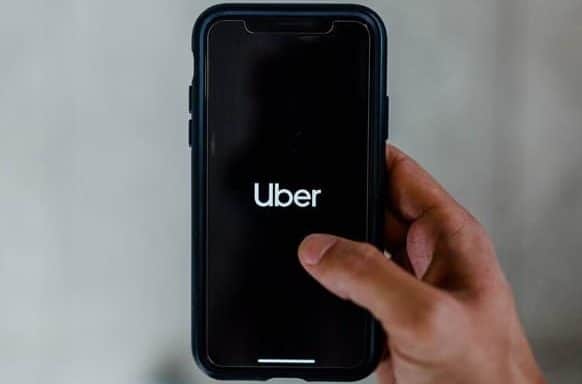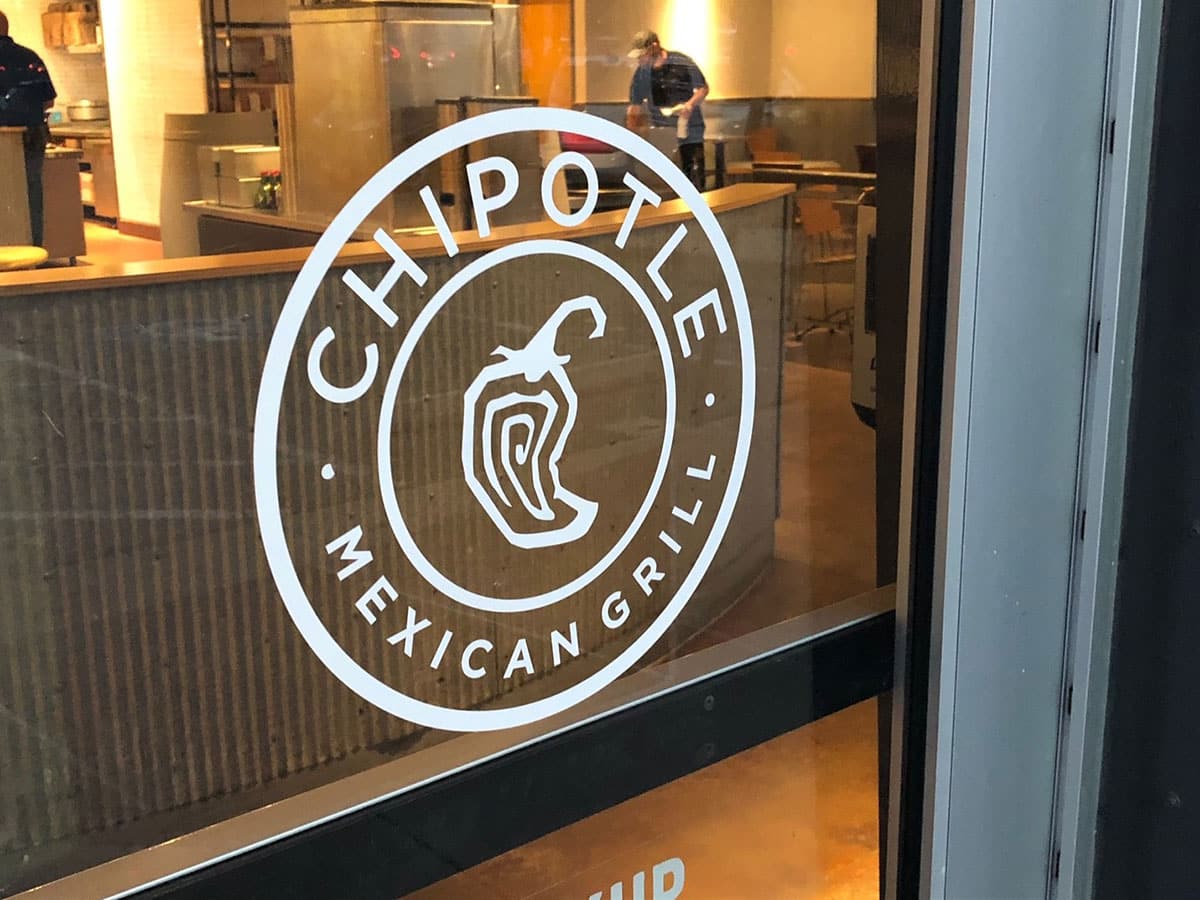Company: Uber Technologies
CEO: Dara Khosrowshahi
Founders: Travis Kalanick and Garrett Camp
Year founded: 2009
Headquarter: San Francisco, USA
Number of Employees (2019): 26,900
Type: Public
Ticker Symbol: UBER
Annual Revenue (Dec 2019): $ 14.14 Billion
Profit | Net income (Dec 2019): -$ 8.5 Billion
Products & Services: UberPlus | UberSelect | UberPool | UberX | UberXL | UberBlack | UberSUV | UberEats | UberDrive | UberHealth | UberFreight.
Competitors: Lyft | Didi Chuxing | Grab | Ola Cabs | Didi | Taxify | GrubHub | Deliveroo | Zomato | Just Eat | Postmates | DHL | Amazon | Waymo (Google) | Cruise Automation | Tesla | Apple | Aptiv | Aurora | Nuro
Did you know that co-founder of Uber, Travis Kalanick, is a University of California, Los Angeles (UCLA) drop-out?
In the technologically advanced society of the 21st century, attaining long-term success in business is determined by the innovative adoption of new and emerging technologies. Uber’s rise to become the largest rideshare company is a testament to the power of innovative adoption of technologies.
The company innovatively exploited mobile technology and the Internet to solve the challenges of transit and cab-hailing in major cities across the world. From San Francisco to Toronto, Paris, Nairobi, New Delhi, and many more cities, Uber’s global dominance is unrivaled. We surely could learn a lot by analyzing how Uber conducts its business.
Uber’s Mission Statement
“We ignite opportunity by setting the world in motion.”
What it means:
Uber’s mission statement is short but precise to the point. It perfectly captures what the company is all about from its operations to how it aims to fulfill its mission, all in less than ten words.
Its mission statement consists of three key components:
- Provide Opportunities Globally: Uber is more than a ridesharing company; it is an opportunity for self-employment. The company is committed to creating more opportunities for everyone across the world.
With the opportunity and tools provided by Uber, people can take control of their financial situation by working and earning as an Uber-driver and enrich their lives.
- Reliable Transportation Worldwide: Uber is more than committed to creating a transportation system that is more accessible, effective, and fuel-efficient. To attain this mission, the company is proactively seeking solutions to enable greater access with fewer cars using less fuel.
Also, Uber is leveraging new technologies to advance its mission of providing safer, reliable, and smarter transportation globally.
Uber’s 2019 Safety report revealed that 99.9% of rides were safely executed, and the company is focused on addressing incidences like a sexual assault that consists of the remaining 0.01%.
- Global Expansion: The third component in Uber’s Mission Statement is to provide mobility across the world. From San Francisco to Rio de Janeiro, Paris, Nairobi, Melbourne, Dubai, and many more, Uber is currently offering its services in 65 countries but seeks to expand further. For one, the ever-growing middle-class in emerging economies provides Uber a path to attain its mission.
Uber’s Cultural Norms
Uber’s Cultural Norms not only highlights its values as a company but also proclaims these values are instinctively woven in the company’s culture. Uber’s Cultural Norms consist of 8 elements:
- Build Globally, Live Locally: Uber values mutually beneficial deals. Uber’s entire business model is founded on offering the masses the opportunity to earn as Uber-drivers while contributing to the company’s bottom line and expansion. By providing opportunities in local economies has enabled Uber to live locally and expand globally very quickly.
- Customer Obsessed: Getting into a stranger’s car requires the highest level of trust. To attract repeat customers consistently, drivers have to offer a surprisingly delightful ride that goes beyond customers’ expectations. Uber is immensely obsessed with the customer.
- Celebrate Differences: Uber in itself is wildly different from the rest, which makes it stand out from the crowd. The company does not shy away from divergent and unconventional practices of doing business. With the increase of women employees by 3%, African Americans by 44.5%, and Hispanics by 73.5%, it is undeniable that Uber embraces and celebrates diversity and differences.
- Do the Right Thing: Most companies can only aspire to attain Uber’s success despite glaring differences in operations. For starters, Uber is expanding rapidly because drivers do the right thing even though they are unsupervised. Doing the right thing is valued and deeply ingrained in Uber’s DNA as a cultural norm.
- Act like Owners: Once you sign up to become an Uber driver, you automatically own a share of the company. From work duration to the time to start working, Uber-drivers are free to choose the most suitable time that works for them. With ownership comes immense responsibilities, such as the best course of action and accountability. Uber values drivers who act like owners and take responsibility for their mistakes.
- Persevere: Since its founding, Uber has persevered through numerous challenges; for example, the company has been unprofitable for years, but it is still pushing on strong. Uber does not seek short cuts or the easy path but powers through even the toughest challenges by tapping into collective resilience within the company. Resilience is its secret weapon.
- Ideas over Hierarchy: Uber values new and disruptive ideas over the old ways of doing things advanced hierarchy. It went against the hierarchy in the traditional transport system to create a business based on new and disruptive ideas. Currently, Uber provides a fertile environment to cultivate the best ideas by leveraging internal and external sources.
- Making Big Bold Bets: Uber has been making big, bold bets right from its founding by going against the grain to establish a business model for the ride-hailing app instead of a conventional taxi service business. With the numerous failures along the way, Uber learned from its mistakes and placed smarter bets over time.
Uber’s Principles
Uber understands that connecting riders to places and drivers to opportunities has real-world consequences. To this end, the company adheres to several principles to deliver its obligations and responsibilities effectively.
- Expanding Accessibility: From UberEats that increase access to nutrition to UberHealth that ensure healthcare, doctors, and caregivers are more accessible to patients, expanding access to everything to everyone through mobility is Uber’s core principle.
- Delivering reliability: Uber believes that any network should be exploited to work for everyone in the community. Whether it is a destination or a dream, a reliable transportation network offered by Uber is vital to enabling both drivers and riders to attain their aspirations.
- Providing Choices: While in Paris for a holiday, the founders were frustrated by the lack of suitable choices in mobility and decided to establish Uber. Uber is focused on addressing rigidity of the traditional transport system to offer both drivers and riders more choices, flexibility, and freedom in work and mobility, respectively.
- Aligning Needs: It is undeniable that the experience of each ride is influenced immensely by the needs of the driver and rider. With Uber’s ride-hailing app, the needs of both parties can be aligned to provide a memorable experience.
- Being Upfront: From pricing to matching and the effect of technology, Uber never comprises the right tools and information to enhance clarity and enable both drivers and riders to acquired maximum benefits from its services.
Uber’s Philosophy
Uber’s philosophy can be traced to the issues the founders sought to address with the establishment of the company and the lessons learned over time.
It can be broken down into six elements:
- Autonomy and Independence: Every person has the right to do what they want at any time. Uber grants drivers and riders more choices and flexibility to exercise their freedom, autonomy, and independence.
- Do-It-Yourself: Uber believes everyone has the capacity to take control of their financial situation. All they need is tools and opportunities, which Uber is willingly ready and highly qualified to provide.
- Never Give Up: Since its founding, Uber has faced numerous failures but got up, dusted off, and placed another bigger and bolder bet.
- Problem-solvers: It is Uber’s philosophy to seek out problems and solve them. This philosophy has enabled Uber to nurture a community of problem-solvers within the company that allows members to contribute to their societies.
- Inclusivity: Uber believes in the collective power of a diverse, inclusive, and equal society. To promote inclusivity, Uber is nurturing a conducive environment that full participation of minority, vulnerable, and disadvantaged groups in society.
- Community First: Uber is in the frontline addressing the lack of employment, which is the main challenge affecting communities across the world. With programs like Uber’s Fund for Sustainable Mobility, the company is already laying the foundation to solve issues that will affect communities in the future.
References & more information
- Featured Photo by Austin Distel on Unsplash
- About Us. https://www.uber.com/us/en/about/ Assessed on April 12, 2020.
- Khosrowshahi, D. (2017, Nov 7). Uber’s new cultural norms. Uber Newsroom. https://www.uber.com/newsroom/ubers-new-cultural-norms/
- Opportunity for All. https://www.uber.com/us/en/community/economic-opportunities/ Assessed on April 12, 2020.
- Our Approach to Safety. https://www.uber.com/us/en/safety/ Assessed on April 12, 2020.
- Garcia, A., and Sara O’Brien (2019, December 7). Uber releases a safety report revealing 5,981 incidents of sexual assault. CNN Business. https://edition.cnn.com/2019/12/05/tech/uber-safety-report/index.html Assessed on April 12, 2020.
- Iqbal, M. (2020, March 24). Uber Revenue and Usage Statistics. The business of Apps. https://www.businessofapps.com/data/uber-statistics/ Assessed on April 12, 2020.
- What Principles Guide Uber’s Marketplace? https://marketplace.uber.com/principles Assessed on April 12, 2020.
- Shirish, A. (2018, Dec. 22). Uber: Building globally, living locally for the next billion. Fortune India. https://www.fortuneindia.com/opinion/uber-building-globally-living-locally-for-the-next-billion/102801 Assessed on April 12, 2020.
- Buckner, K. (2019, March 28). Improving the User Experience with Uber’s Customer Obsession Ticket Routing. https://eng.uber.com/customer-obsession-ticket-routing-workflow-and-orchestration-engine/ Assessed on April 12, 2020.
- Diversity. http://www.uber.com/about/diversity/ Assessed on April 12, 2020
- Goetz, L. (2019, Nov 17). 4 Reasons Why Riders Choose Uber. Investopedia. https://www.investopedia.com/articles/markets/063016/4-reasons-why-riders-choose-uber.asp Assessed on April 12, 2020.
- Shin-pei Tsay. (2020, Jan 13). Uber Announces New Mobility Infrastructure Initiative for Safe Streets. https://www.uber.com/newsroom/city-mobility-campaign/ Assessed on April 12, 2020.
- Campbell, H. (2019, Sept. 16). Uber Drivers Just Want to Be Free. The New York Times. https://www.nytimes.com/2019/09/16/opinion/uber-ab5-california.html Assessed on April 12, 2020.
- Anita B. (2017, NOV 7). Uber employees voted on the new company culture. https://www.cnbc.com/2017/11/07/ubers-new-cultural-norms.html Assessed on April 12, 2020.
- By Andrew J. Hawkins J. A. (2019, August 8). Uber lost over $5 billion in one quarter, but don’t worry, it gets worse. The Verge. https://www.theverge.com/2019/8/8/20793793/uber-5-billion-quarter-loss-profit-lyft-traffic-2019 Assessed on April 12, 2020.
- Muller, E. (2019, October 4). Delimiting disruption: Why Uber is disruptive, but Airbnb is not. Science Direct. https://www.sciencedirect.com/science/article/pii/S0167811619300679 Assessed on April 12, 2020.
- Nguyen, T. (2019, Sep 5). Uber wants to redeem itself. Does the public even care? VOX. https://www.vox.com/the-goods/2019/9/5/20849632/uber-public-relations-crisis-qanda Assessed on April 12, 2020.
- (2019, June 25). Uber’s 2019 Diversity Report. https://www.uber.com/newsroom/2019-diversity-report/ Assessed on April 12, 2020.
- Biz Carson, B. (2019, Sep 19). Where Uber Is Winning The World, And Where It Has Lost. https://www.forbes.com/sites/bizcarson/2018/09/19/where-uber-is-winning-the-world-and-where-it-has-lost/#6847ce484d6e
- West, T. (2018, May 15). Turning the lights on. Uber Newsroom. https://www.uber.com/newsroom/turning-the-lights-on/
- India SA Comms Team. (2020, Mar 31). Uber Provides UberMedic Service to Assist Healthcare Providers. Uber Newsroom. https://www.uber.com/en-IN/newsroom/uber-provides-ubermedic-to-assist-healthcare-providers/
- Khosrowshahi, D. (2018, Nov 20). An Improved Experience for Riders in Wheelchairs. Uber Newsroom. https://www.uber.com/newsroom/improved-experience-riders-wheelchairs/
- Chen M. K. (2019, October 31). The Value of Flexible Work: Evidence from Uber Drivers. JPE. https://www.journals.uchicago.edu/doi/abs/10.1086/702171?af=R&mobileUi=0& Assessed on April 12, 2020.
- Careers at Uber. https://www.uber.com/us/en/careers/ Assessed on April 12, 2020.
- Khosrowshahi, D. (2018, September 25). The Campaign for Sustainable Mobility. Uber Newsroom. https://www.uber.com/newsroom/campaign-sustainable-mobility/ Assessed on April 12, 2020.
Tell us what you think? Did you find this article interesting?
Share your thoughts and experiences in the comments section below.












Add comment